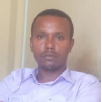International Journal of Information Technology and Computer Science (IJITCS)
IJITCS Vol. 8, No. 3, 8 Mar. 2016
Cover page and Table of Contents: PDF (size: 491KB)
Localized Knowledge based System for Human Disease Diagnosis
Full Text (PDF, 491KB), PP.43-50
Views: 0 Downloads: 0
Author(s)
Index Terms
Knowledge Based system, Localization of KBS, Disease diagnosis, Amharic Language user interface, artificial intelligence
Abstract
Knowledge based system can be designed to solve complex medical problems. It incorporates the expert’s knowledge that has been coded into facts, rules, heuristics and procedures. Incorporation of local languages with the knowledge based system allows end-users communicate with the system in a simpler and easier way. In this study a localized knowledge based system is developed for TB disease diagnosis using Ethiopian national language. To develop the localized knowledge based system, tacit knowledge is acquired from domain experts using interviewing techniques and explicit knowledge is captured from documented sources using relevant documents analysis method. Then the acquired knowledge is modeled using decision tree structure that represents concepts and procedures involved in diagnosis of disease. Production rules are used to represent domain knowledge. The localized knowledge based system is developed using SWI Prolog version 6.4.1 programming language. Prolog supports natural language processing feature to localize the system. As a result, the system is implemented using Amharic language (the national language of Ethiopia) user interface. With Localization, users at remote areas and users who are not good in foreign languages are benefited enormously. The system is tested and evaluated to ensure that whether the performance of the system is accurate and the system is usable by physicians and patients. The average performance of the localized knowledge based system has registered 81.5%.
Cite This Paper
Adane Nega Tarekegn, "Localized Knowledge based System for Human Disease Diagnosis", International Journal of Information Technology and Computer Science(IJITCS), Vol.8, No.3, pp.43-50, 2016. DOI:10.5815/ijitcs.2016.03.05
Reference
[1]Aderonke A. et al. “An Integrated Knowledge Base System Architecture for Histopathological Diagnosis of Breast Diseases”. I.J. Information Technology and Computer Science, PP.74-84, V.01, 2013.
[2]Audrey Mbogho, “Knowledge Based Expert System for Medical Advice provision”. MSc thesis, department of Computer Science, University of Cape Town, 2012.
[3]Jaime, Michael L., Peter G. “A Natural Language Interface to Expert Systems”. Unpublished, Computer Science Department, Carnegie Mellon University, 1985.
[4]Varsha Tomar, Manisha Bhatia. “Localization of Text Editor using Java Programming”, International Journal of Computer Applications, Vol.89, No.12, PP.49-54, march 2014.
[5]Jaime, Michael L., Peter G. “A Natural Language Interface to Expert Systems”. Unpublished, Computer Science Department, Carnegie Mellon University, 1985.
[6]Koushal, Gour Sundar. “Advanced Applications of Neural Networks and Artificial Intelligence: A Review”. I.J. Information Technology and Computer Science, V.7, PP.57-68, 2012.
[7]Mack, N., Kathleen, C., Macqueen, M., Guest, G. and Namey, E. “Qualitative research methods: A data collector field guide”. Internet: http://www.fhi360.org/resource/qualitative-research-methods-data-collectors-field-guide, July 2011, [March, 2014].
[8]G. D. Garson, "Sampling," 2012 Edition ed: Statistical Association Publishing, 2012.
[9]Pearson Education. “Chapter 18 - Knowledge Acquisition, Representation, and Reasoning”, URL: http://wps.prenhall.com/wps/media/objects/3778/3869053/Turban_Online_Chapter_W18.pdf, [Feb 02, 2014].
[10]Solomon A. “a self-learning KBS for diagnosis and treatment of diabetes.” MSc Thesis, Addis Ababa University School of Information Science, Ethiopia, 2013.
[11]Ashenafi chalchissa. “Developing a knowledge-based system for counseling students at ethiopian higher education institutions”. MSc thesis, University of Gondar, Department of computer science, Ethiopia, 2013.
[12]Rhem, A.J and Associate inc. “Frame work of knowledge acquisition”. Internet: http://webcache.googleusercontent.com/search?q=cache:1BwBc5AQmjwJ:www.ajrhem.com/framework.pdf+&cd=1&hl=en&ct=clnk&gl=et, May 2011[April 2014].
[13]Nigel R. Shadbolt and Paul R. Smart.” Knowledge Elicitation: Methods, Tools and Techniques”. Internet: http://www.amazon.co.uk/Evaluation-Human-Work-Fourth-Wilson/dp/1466559616/, 2014].
[14]Pamela Faber. “Conceptual modeling in specialized knowledge resources”. Unpublished, University of Granada, Spain, 2009.
[15]Hussein A, Shigeo K., Yasuhiro. “Development and applications of decision trees”. unpublished, japan, 2002.
[16]Audrey Mbogho, “Knowledge Based Expert System for Medical Advice provision”. MSc thesis, department of Computer Science, University of Cape Town, 2012.
[17]Ashenafi chalchissa. “Developing a knowledge-based system for counseling students at ethiopian higher education institutions”. MSc thesis, University of Gondar, Department of computer science, Ethiopia, 2013.
[18]Abdullah, M.S., Kimble, C., Benest, I. and Paige, R. “Knowledge Based Systems: a re – evaluation”. Journal of Knowledge Management, Vol. 10, No. 3, Pp. 127-142, 2006
[19]K.Soundararajan, Dr.S.Sureshkumar, C.Anusuya.” Diagnostics Decision Support System for Tuberculosis using Fuzzy Logic”. International Journal of Computer Science and Information Technology & Security (IJCSITS), Vol. 2, No.3, June 2012.
[20]Imianvan, A. A., and J. C. Obi. "Fuzzy cluster means expert system for the diagnosis of Tuberculosis." Global Journal of Computer Science and Technology, Volume 11, Issue 6, pp.41-48, April 2011.
[21]SebleWongel.“Developing prototype knowledge-based system for anxiety mental disorder diagnosis”. MSc Thesis, Addis Ababa University School of Information Science, Ethiopia, 2012.
[22]World health organization. “Global tuberculosis report 2013”: URL:http://www.who.int/tb/publications/global_report/en/, May 2012.
[23]Dipanwita, et al. “Disease Diagnosis System”. URL: http”//www.interscience.in,2014.
